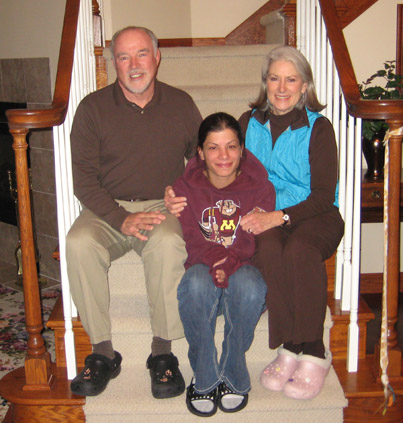|
Wayne Neubarth Victoria 952-443-1910 |
|
Tom O’Connell, CPA Income Tax Preparation. 952-474-6509 |











|
CORNERSTONE Insurance Agency David Barsness * 952-448-5028 |
|
Sebenaler Chiropractic Center Chaska * 952-448-9908 |
|
Christ Victorious Lutheran Church Just south of Victoria * 952-443-2993 |



|
Custom New Homes Victoria * 952-443-2740 |
|
942-448-3434 |
|
952-442-4411 |


|
Headlines and bylines |
|
Front Page Feature Story |
|
From the Editor |
|
Addie’s Drawing |
|
Letters to the Editor |
|
Victoria Moments |
|
Hook Line & Sinker |
|
Calendar of Events |
|
Click here to Advertise |
|
the Gazette |
|
Return to Home Page |
|
Order paper Gazette |
|
Notes and Quotes |
|
The Scoop at City Hall |










|
Norsemen Travel Depend on us for ALL your travel needs! |
|
Bertas Funeral Home Chaska * 952-448-2137 |

|
Home Page |
|
The Victoria GAZETTE |
|
Ancsa Continued |
|
Bill said that many Gypsy children grow up in orphanages and foster homes in Hungary. “Typically, Hungarian Gypsies don’t keep their kids,” he said. “They travel, and many of them can’t afford another child. There is also much prejudice against this group of people. Persecution and discrimination are evident. It is overt.” Others in the country also do not fare very well. “Hungary is one of the most depressed countries in the European Union,” said Bill. “Hungary is much worse off than Germany or France. It is hard for young people and also grown-ups to find jobs. It’s a poor country. The oppression from the communist regime is everywhere. You see huge apartment buildings, huge block buildings built by communists, filled with families close to downtown. Kids don’t have cars, and don’t need cars because there is good public transportation, lots of trains and buses. That is an advantage for them.” Added Bill, “There is a sadness that is pervasive in that society, because under communism you didn’t know who might turn you in.” Maureen said that oftentimes families in Hungary live together, and the one in the family with the job is the one who supports them. There is much unemployment. Said Ancsa, “More than half of the people are not working.” That is probably true for some sectors of the country. And that’s partly why all those big block apartment buildings come in handy. People don’t need vehicles to get somewhere. Said Bill, “I didn’t see one SUV when I was there. Gas is so expensive. It was $8 a gallon and that was before prices spiked.” He added that learning how to drive is on Ancsa’s list of things to do. Ancsa said that many Hungarian students leave for other countries after they finish college. By the time the young people do leave, they’ve got up to 16 years of schooling under their belt, all provided by the government. That includes 12 grades plus four years of college. Ancsa graduated from a four-year college in Miskolc, having majored in Viola and Performing Arts. In other words, the climate of political change under the fall of communism is not totally suppressing since it does provide years of extensive education to the younger generation. It even promotes ongoing education for the large orphan population. Said Maureen, “Young people can remain living at the orphanage from age 2 to 21 – but only to age 21 if they’re attending school. Otherwise they’re on the street at 18 and maybe they’ll find menial jobs or work in the sex trade.” Along those lines, Ancsa said, “From the orphanage some girls have abortions. Some have many abortions.” Ancsa didn’t live continuously in an orphanage. She lived in a baby orphanage from birth to 3 years old, then was adopted by a Hungarian foster family in Gyongyos, Hungary, and lived with them until 17 years old. After that she went to another orphanage for a short time, then was transferred to a more permanent orphanage where she stayed until she was 24. As long as Ansca continued her schooling, she was allowed to live in that orphanage – versus on the street. ***
|
|
December 2009 |

